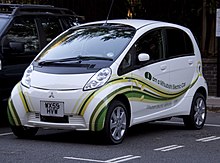Electric Cars Are More
Polluting than Gas Guzzlers
Electric cars are all the rage in China, but they may not be helping to
clean up the environment or protect human health from pollution.
It’s
unspoken, but every driver gliding around town behind the wheel of a Prius is
thinking the same thing: “I’m saving the planet. What are you doing, you
dirty-fossil-fuel burner?”
What’s
implied is that hybrid or electric-car drivers are also saving human lives,
since the fuel-burning internal combustion engines that power conventional
vehicles emit carbon dioxide and fine particulate matter including acids,
organic chemicals as well as dust and soil; this pollution has been linked to
respiratory and heart problems and cancer.
But,, according to a new study published in the journal Environmental
Science & Technology, it turns out that the use of electric vehicles
may not be that clean after all, particularly in the world’s most populated
country, China.
In
the study, Christopher Cherry, an assistant professor of civil and
environmental engineering at University of Tennessee, and his colleagues found
that in terms of air pollution, electric vehicles were more harmful to public
health per kilometer traveled than gasoline-powered cars. That’s right — the
electrically powered cars turned out to be dirtier than those with internal
combustion engines.
How
could that be? Cherry says there’s been an implicit assumption that because
electric cars don’t burn fossil fuels, they’re cleaner for the environment and
safer for people, but that doesn’t take into account how the electricity they
use is generated. In China, that would be from — you guessed it — fossil fuels.
About 85% of the country’s electricity is powered by fossil fuels, of which 95%
is coal.
“It’s
tricky comparing electric vehicle emissions with emissions from internal
combustion engines, because you can’t compare the emissions,” says Cherry. “With
gasoline engines, a 1-1 change in emissions results in a 1-1 change in health
outcomes because the emissions are released in the same place where people
inhale them.”
That’s
not the case with electric cars, whose dirty emissions are released at the electricity-generating
power plant, while the vehicle is used elsewhere. It’s this disconnect that has
given electric vehicles an apparently cleaner bill for health, but Cherry says
that once you factor in how many people within the range of electricity generating
power plants are affected by emissions, the story gets a little dirtier. In
China’s case, pollution from electricity plants is spreading exposure to
potentially harmful particulates in the air from urban populations to those in
more remote rural regions.
VIDEO: China’s Knockoff Electric Carmakers
Kilometer per kilometer, electric cars in
China beat out conventional vehicles as among the worst environmental
polluters. On average, the fine particulate emissions per passenger-km are 3.6
times greater for electric cars than for gasoline cars. That’s better than for
diesel cars but on par with diesel buses, which can spread their environmental
impact across the number of passengers they carry. “If we compare gasoline car
emissions to electric car emissions, the electric cars look very, very bad,”
says Cherry. “So the point is that you have to consider the emissions exposure
when the exposure source is far apart — the electrical power plant as opposed
to the tailpipe of a car.”
The problem is that the Chinese government, in a
well-intentioned effort to promote more eco-friendly power use, has
been pushing electric cars, motorcycles and scooters in recent years. The
effort has been so successful that electric bike ownership is surging at 86%
annual growth. There are now 100 million electric bikes on China’s roads, and
they outnumber gas-powered cars 2-to-1.
There’s
also some hope in China’s changing energy policies; cities in the southwest
have adopted cleaner electricity generating power sources, and generally
release fewer emissions than those in the northeast. Cherry notes also that
electricity generation in the U.S. is cleaner than it is in China, which means
that the impact of electric car use in the two countries can’t be compared. But
the results highlight an important lesson not just for China but for anyone
eager to scale up alternative energy production as a way to benefit both man
and the planet. The good news is that while electric cars didn’t fare so
well in reducing emissions, electric bikes and scooters — which typically use
one-tenth the electricity of the cars — did a lot better. The researchers found
that e-bike usage improved air quality and environmental health by displacing
the use of larger, more polluting vehicles.
“China has a lot more room for improvement in its power sector, and the lowest hanging fruit would be to clean up its power sector first,” says Cherry, rather than focusing on lowering vehicle emissions. Once that happens, he says, “electric cars will have room to gain on conventional cars in the long run.” Cherry is also a writer at TIME.
From Time.com
